11 start with S start with S
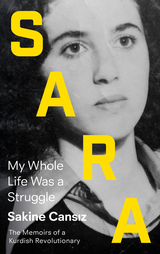
This memoir, available for the first time in English, tells the story of the first chapter of Cansiz’s life, from the founding of the PKK in 1974 through her arrest in 1979. She writes here about the excitement of entering the movement as a young woman—and discovering quickly that she would have to challenge traditional gender roles as she rose among its ranks. And she succeeded: total gender equality is now one of the central tenets of the PKK.
Today, Sara lives on, an inspiration to women fighting for liberation around the world. Her story, told in her own words, is by turns shocking, violent, and groundbreaking.

Ancient Sardis, the capital of Lydia, was of outstanding importance: in the Lydian period it held the residence of the kings and subsequently, under Persian rule, the satraps. Throughout antiquity it remained an administrative center. Travelers of modern times and archaeological excavations have revealed, from the city site and its surroundings, inscriptions written mostly in Greek, some in Latin. Their texts deal with all kinds of subjects: decrees, public honors, civil and sacred laws, letters, epitaphs, and more.
In the corpus “Sardis VII 1” (1932) W. H. Buckler and D. M. Robinson published all inscriptions (228 items) known up to 1922, after which year excavation at Sardis came to a halt because of the Greek-Turkish war. Since excavation resumed in 1958, a portion of the Greek and Latin inscriptions has been published in various, widely scattered places; another portion, containing important texts discovered during the last ten years, was until now unpublished. The aim of this monograph is to present in a comprehensive corpus the entire epigraphic harvest (485 items) made in Sardis and its territory since 1958. Each inscription is accompanied by a description of the monument, bibliography, translation, and commentary; indices, concordances, photographs, and maps complement the collection.
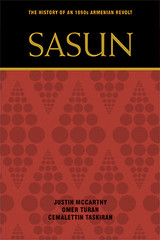
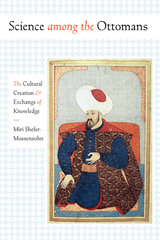
Scholars have long thought that, following the Muslim Golden Age of the medieval era, the Ottoman Empire grew culturally and technologically isolated, losing interest in innovation and placing the empire on a path toward stagnation and decline. Science among the Ottomans challenges this widely accepted Western image of the nineteenth- and early twentieth-century Ottomans as backward and impoverished.
In the first book on this topic in English in over sixty years, Miri Shefer-Mossensohn contends that Ottoman society and culture created a fertile environment that fostered diverse scientific activity. She demonstrates that the Ottomans excelled in adapting the inventions of others to their own needs and improving them. For example, in 1877, the Ottoman Empire boasted the seventh-longest electric telegraph system in the world; indeed, the Ottomans were among the era’s most advanced nations with regard to modern communication infrastructure. To substantiate her claims about science in the empire, Shefer-Mossensohn studies patterns of learning; state involvement in technological activities; and Turkish- and Arabic-speaking Ottomans who produced, consumed, and altered scientific practices. The results reveal Ottoman participation in science to have been a dynamic force that helped sustain the six-hundred-year empire.
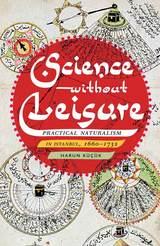
Science in seventeenth- and eighteenth-century Istanbul, Harun Küçük argues, was without leisure, a phenomenon spurred by the hyperinflation a century earlier when scientific texts all but disappeared from the college curriculum and inflation reduced the wages of professors to one-tenth of what they were in the sixteenth century. It was during this tumultuous period that philosophy and theory, the more leisurely aspects of naturalism—and the pursuit of “knowledge for knowledge’s sake”—vanished altogether from the city. But rather than put an end to science in Istanbul, this economic crisis was transformative, turning science into a practical matter, into something one learned through apprenticeship and provided as a service. In Science without Leisure, Küçük reveals how Ottoman science, when measured against familiar narratives of the Scientific Revolution, was remarkably far less scholastic and philosophical and far more cosmopolitan and practical. His book explains why as practical naturalists deployed natural knowledge to lucrative ends without regard for scientific theories, science in the Ottoman Empire over the long term ultimately became the domain of physicians, bureaucrats, and engineers rather than of scholars and philosophers.
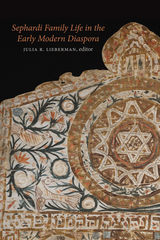
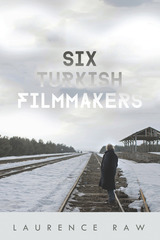
In analysis of and personal interviews with Dervis Zaim, Zeki Demirkubuz, Semih Kaplanoglu, Çagan Irmak, Tolga Örnek, and Palme d'Or winner Nuri Bilge Ceylan, Raw draws connections with Turkish theater, art, sculpture, literature, poetry, philosophy, and international cinema. A native of England and a twenty-five-year resident of Turkey, Raw interleaves his film discussion with thoughtful commentary on nationalism, gender, personal identity, and cultural pluralism.
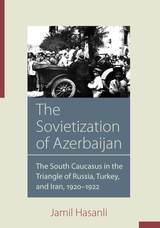
World War I and the fall of tsarist Russia brought brief independence to Azerbaijan, but by 1920 the Bolshevik revolution pushed south with the twofold purpose of accessing the oil-rich fields near Baku on the Caspian Sea and spreading communism into the Caucasus. Azerbaijan, the richest and earliest significant source of oil in the world, was the first republic in the South Caucasus occupied by the Red Army, which then advanced into neighboring Armenia and Georgia. Pulling from confidential, newly accessed archives, Hasanli describes Soviet Russia’s aggressive policy toward the three South Caucasian nations, which led to their absorption into the USSR by the end of 1922.
The book highlights the Caucasian peoples’ struggle to retain political independence against Soviet Russia and an international cast that included European powers wanting to retain petroleum concessions; Kemalist Turkey, which claimed special ties to the Turkic Azeris; and Iran, which controlled South Azerbaijan and was thus a possible route of expansion eastward for Bolshevik movement. The author also considers the impact on Azerbaijani-Armenian relations of the first two years of Sovietization and explains how Azerbaijan provided space for Bolshevik experiments. Throughout his book, Hasanli illuminates the tragedy of the complex, confused period of Sovietization of the South Caucasus.
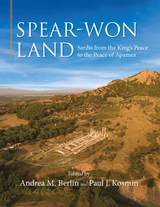
The contributors to this volume are members of the Hellenistic Sardis Project, a research collaboration between long-standing expedition members and scholars keenly interested in the site. These new discussions on the pre-Roman history of Sardis restore the city in the scholarship of the Hellenistic East and will be enlightening to scholars of classical archaeology.
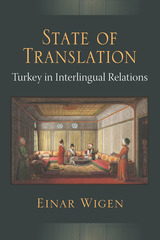
International politics often requires two or more languages. The resulting interlingual relations mean translation, either by interpreters who are quite literally in the middle of conversations, or by bilingual statesmen who negotiate internationally in one language and then legitimize domestically in another. Since no two languages are the same, what can be argued in one language may be impossible in another. Political concepts can thus be significantly reformulated in the translation process. State of Translation examines this phenomenon using the case of how 19th-century Ottoman and later Turkish statesmen struggled to reconcile their arguments in external languages (French, then English) with those in their internal language (Ottoman, later Turkish), and in the process further entangled them. Einar Wigen shows how this process structured social relations between the Ottoman state and its interlocutors, both domestically and internationally, and shaped the dynamics of Turkish relations with Europe.
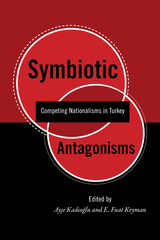
Utah Series in Middle East Studies
Today, nationalism and nationalist sentiments are becoming more and more pronounced, creating a global emergence of ethno-nationalist and religious fundamentalist identity conflicts. In the post-9/11 era of international terrorism, it is appropriate to suggest that nationalism will retain its central place in politics and local and world affairs for the foreseeable future. It is in this vein that there has been a recent upsurge of interest concerning the power of nationalist tendencies as one of the dominant ideologies of modern times.
Symbiotic Antagonisms looks at the state-centric mode of modernization in Turkey that has constituted the very foundation on which nationalism has acquired its ideological status and transformative power. The book documents a symposium held at Sabanci University, presenting nationalism as a multidimensional, multiactor-based phenomenon that functions as an ideology, a discourse, and a political strategy. Turkish, Kurdish, and Islamic nationalisms are systematically compared in this timely and significant work.
READERS
Browse our collection.
PUBLISHERS
See BiblioVault's publisher services.
STUDENT SERVICES
Files for college accessibility offices.
UChicago Accessibility Resources
home | accessibility | search | about | contact us
BiblioVault ® 2001 - 2024
The University of Chicago Press









